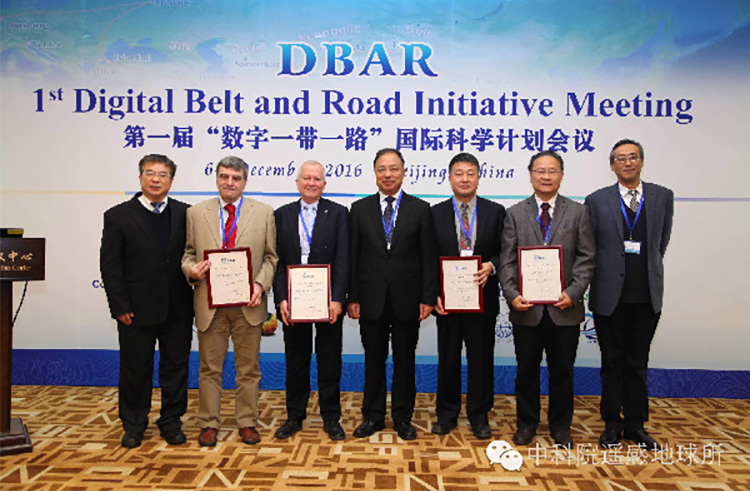An international research program, the Digital Belt and Road (DBAR) Initiative, was launched in Beijing in December 2016 to take advantage of Earth observation to address common issues, including climate change, food security, protection of world heritage sites, unbalanced economic and urban development, and disaster risks, in the Belt and Road Region. The Belt and Road includes 65 countries located along a land-based belt from China via Central Asia and Russia to Europe, and a maritime route through the Straight of Malacca to India, the Middle East and East Africa.
300 participants from over 40 Belt and Road countries and international organizations gathered to call for coordinated research and actions across borders to cope with common economic, developmental and environmental challenges. Participants included scientists, leaders of scientific organizations and government officials in charge of Science & Technology affairs.

DBAR contributes to sustainable development in the Belt and Road regions, by promoting:
- Earlier, deeper and broader understanding of the Belt and Road to address common challenges such as climate change, water resources, eco-environments, and food supply, in an integrated way;
- Efforts to build up a scientific community for exchanging and sharing Earth observation developments and solutions in the region, including capacity building;
- Efforts to strengthen and enhance Earth observation infrastructure; and
- Joint efforts to promote big data science methods.
DBAR established eight working groups, focused on: agriculture, big Earth data, water security, climate and environment, world heritage, disaster risks, coastal zone, and urban issues.
TEA-START (the Temperate East Asia Regional Center for START) was actively involved in the development of the initiative. Prof. Gensuo Jia, TEA-START Director, serves as a member of the DBAR science committee and co-chair of the climate and environment working group.
Read more on the website of the Chinese Academy of Sciences.


